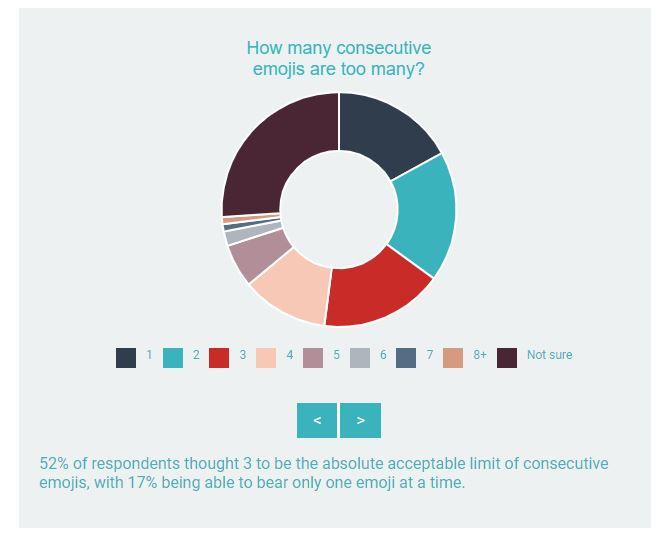share on
Additionally, 60% of employees surveyed believe emojis in business communications are inappropriate, while 53% think they have made business communication more informal/debased.
Office buzzwords — we all know of them. Terms such as "alignment" and "synergy" can be found peppered all throughout our many e-mail threads. For some, having to hear these superfluous phrases in everyday conservations may be slightly annoying.
As part of a wider study on the future of language in the UK, involving 1,500 participants, Preply has identified common business “buzzwords” employees are the most tired of hearing.
While "build back better" and "synergise" both tied in at second, receiving 25% of the votes respectively, "think outside the box" by far takes the cake with 40%. It is also no surprise that with remote working being the norm, the phrase "can you see my screen?" has managed to make the list, albeit in 10th place. The full list is as follows:
- Think outside the box - 40%
- Build back better - 25%
- Synergise - 25%
- Low-hanging fruit - 24%
- Working in silos - 19%
- Circle back - 19%
- Boots on the ground - 17%
- Regroup - 17%
- 360 Review - 16%
- Can you see my screen? - 15%
*Note: While this survey was conducted in the UK, HRO believes the data would still be relevant and relatable to our readers in Asia.
[ALSO READ: The most annoying corporate jargon of 2021: Give your 110%, I'll ping you, and more]
Is it a 'yes' or a 'no' for emojis at the workplace?
The study also took a look at emojis in workplace communication.
As a whole, 60% of respondents felt that emojis in business communications are inappropriate. Similarly, 53% of respondents think emojis have made business communication more informal/debased.
Interestingly, 52% of respondents considered three to be the acceptable limit of consecutive emojis, while 17% could bear only one emoji at a time.

[ALSO READ: To use or not to use: Emojis in work emails]
Apart from the above, the study also revealed how language reflects our identity and culture, noting that several new words and phrases have already become part of the modern lexicon.
For instance, more gender-neutral terms are being adopted in our everyday vocabulary. As an example, terms such as "policeman" and "chairman", while seemingly innocuous, are considered unnecessarily gendered.
The alternatives — "police officer" and "chairperson" — are being used more often, and rightly so.
On that note, with many businesses still struggling with ingrained language that is no longer inclusive, how can they then improve language use in the workplace? In recent interviews, we spoke with two HR leaders to find out:
- Twitter’s efforts on getting teams to attend training on why words matter;
- Skyworks Solutions' emphasis on being sensitive to employees’ personal situation; and
- Unexpected everyday phrases to be mindful of.
Read the full feature here for what leaders from both organisations have to say.
Photo / 123RF
Follow us on Telegram and on Instagram @humanresourcesonline for all the latest HR and manpower news from around the region
share on
Follow us on Telegram and on Instagram @humanresourcesonline for all the latest HR and manpower news from around the region!
Related topics


